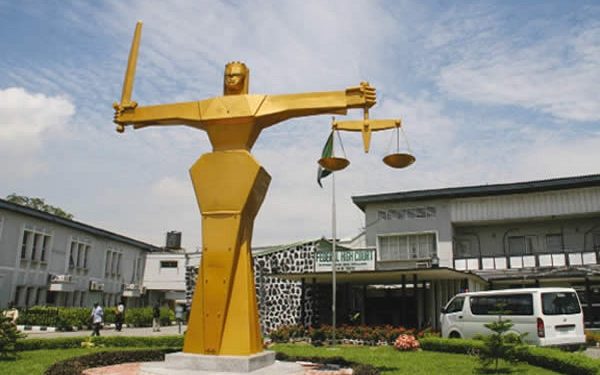The Federal High Court sitting in Abuja has dismissed a lawsuit challenging President Bola Ahmed Tinubu’s declaration of a state of emergency in Rivers State on March 18, 2025.
This proclamation led to the suspension of Governor Siminalayi Fubara and members of the State House of Assembly for six months.
President Tinubu’s proclamation sparked controversy after he temporarily dissolved the state’s political structures and appointed a sole administrator, Vice-Admiral Ibok-Ete Ibas (rtd.), to oversee the oil-rich state’s affairs.
The move drew sharp criticism, especially from a group called Concerned Rivers Indigenes, led by Belema Briggs, which challenged the legality of the presidential action in court.
The plaintiffs argued that Tinubu’s declaration infringed on their democratic rights and was akin to a civilian coup against the people of Rivers.
They asserted that the legal conditions required to invoke emergency rule were not met in the state at that time.
Through their lawyer, Dolapo Tella Attoni, the group asked the court to void the declaration, reinstate the suspended elected officials, and prevent the appointed administrator from exercising executive powers.
In his ruling, Justice James Omotosho dismissed the case for lack of merit and jurisdiction.
He stated that the five plaintiffs lacked the legal standing to bring such a suit. According to him, only the Supreme Court has the constitutional authority to hear disputes between a state and the federal government.
Justice Omotosho also noted that none of the plaintiffs was a member of the Rivers State Executive Council or House of Assembly, nor had they demonstrated any specific injury beyond what other citizens of the state might have experienced.
He added that they had no authorization from the state Attorney General to sue on behalf of the state.
The court also supported the President’s reason for imposing the emergency rule. Justice Omotosho observed that the plaintiffs did not directly challenge Tinubu’s claim that the move was necessary to prevent an imminent breakdown of law and order in Rivers.
He dismissed their claims of violated fundamental rights as baseless, emphasizing that the President acted within his powers under Section 305 of the Emergency Act.
According to the judge, the case was frivolous because the plaintiffs purported to act on behalf of the people of Rivers without any official mandate.
He clarified that only the Supreme Court can review the validity of a presidential emergency declaration, not the Federal High Court.
“The originating process ought not to have been accepted for filing in this court.
The subject matter of this suit is clearly outside the jurisdiction of this court,” Justice Omotosho stated.
On the main issue, the court ruled that the suspension of Governor Fubara, his deputy, and the Assembly members was lawful, and that the President had acted properly under his constitutional powers in appointing a sole administrator.
The plaintiffs had sought several reliefs, including declarations that Tinubu lacked the authority to remove the governor and Assembly members, and an order invalidating the delegation of executive authority to Vice-Admiral Ibas. All the requests were denied.
Justice Omotosho reaffirmed that President Tinubu’s actions were lawful to protect public order, dismissing the entire suit.









